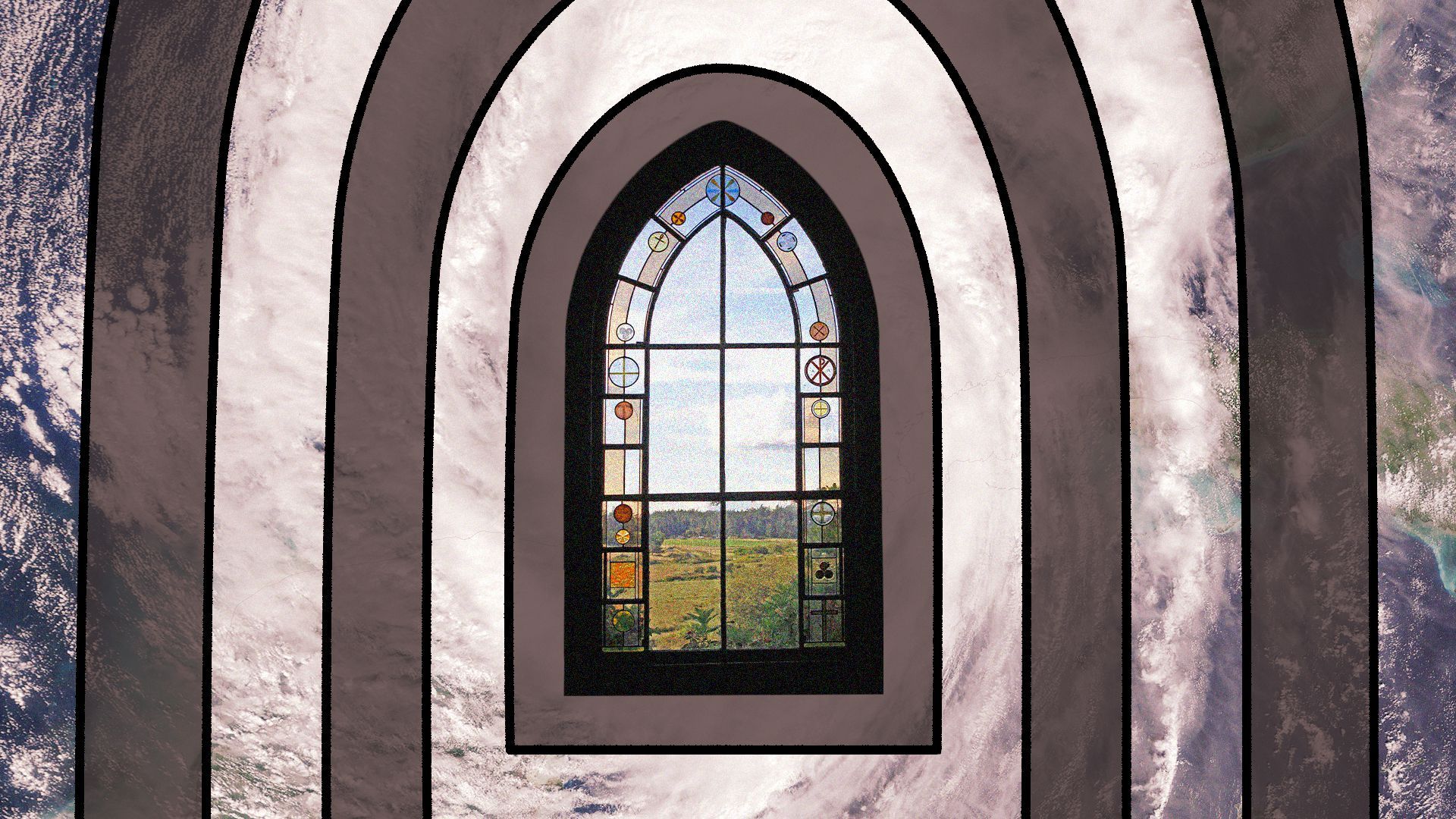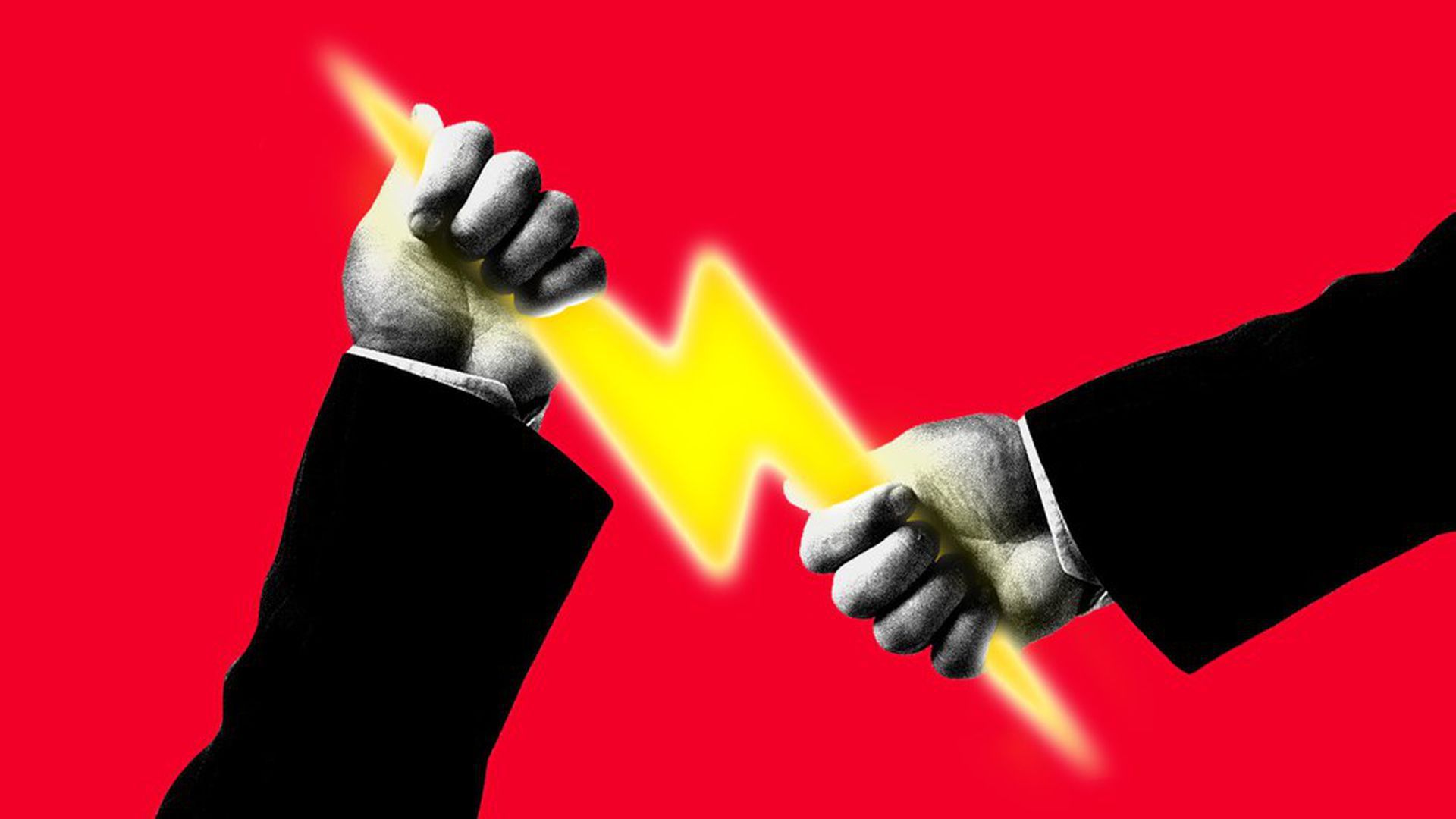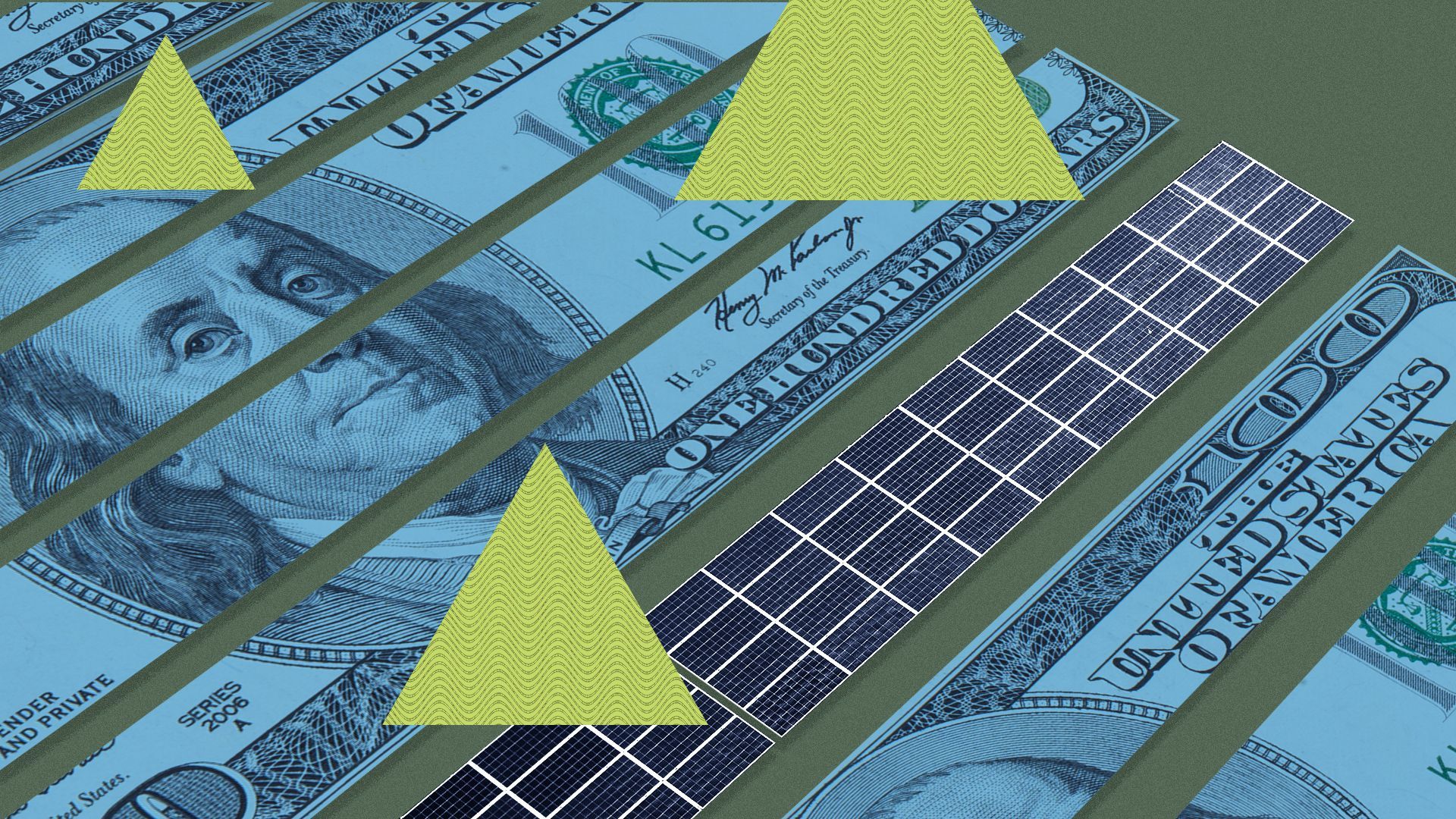| |
| |
| |
| Presented By LiveWire |
| |
| Axios Generate |
| By Ben Geman and Andrew Freedman · Dec 05, 2022 |
| 🥞 Good morning! Today's newsletter has a Smart Brevity count of 1,227 words, 5 minutes. 📬 Did a friend send you this newsletter? Welcome, please sign up. 🎶 This week marks 45 years since the great Al Green released "The Belle Album," which provides today's intro tune... |
| |
| |
| 1 big thing: Sizing up oil's new landscape |
 |
|
| Illustration: Aïda Amer/Axios |
| |
| The oil trader hive mind and OPEC+ are taking the same view of the newly imposed price cap and sanctions on Russian oil: let's see how this all shakes out before making big moves, Ben writes. Driving the news: The EU ban on seaborne Russian crude and the G7's $60-per-barrel price cap on Russian oil both took effect today, but the market response has been somewhat chill. - Brent crude climbed roughly 3% this morning to slightly over $88 per barrel.
Catch up quick: OPEC+ yesterday decided to hold joint output levels steady, declining to deepen or unwind the collective cut announced in early October. - The decision "is not a surprise, given the uncertainty in the market" over the effect of the EU and G7 moves, Wood Mackenzie analyst Ann-Louise Hittle said in a note.
Why it matters: The price cap is an unprecedented attempt to keep Russian barrels supplying global markets, but its effect remains foggy — and so does Russia's response. - "We will sell oil and oil products to those countries which will work with us on market conditions, even if we have to somewhat cut production," Deputy PM Alexander Novak said Sunday, per Russian state news.
What we're watching: RBC Capital Markets analysts, in a note via Bloomberg, say "it remains uncertain whether it will ensure the smooth flow of Russian barrels to Asian markets or if there will be a material disruption." - "Any clear indication that Russia is prepared to cut off oil exports could cause prices to spike in the coming days."
Quick note: As always, China is the straw that stirs the drink as the world's largest oil importer. Stories in multiple outlets cite reports of a limited loosing of COVID restrictions as a driver of today's price uptick. |
    |
| |
| |
| 2. First Look: ClimateCheck inks deal with Black Knight |
 |
|
| Illustration: Lazaro Gamio/Axios |
| |
| ClimateCheck, which provides climate risk data to the public and private sector, has struck a partnership with Black Knight Inc., a mortgage technology and data company, the firm first told Axios, Andrew writes. Why it matters: The deal, which is for an undisclosed sum, is part of a surge of data buys in economic sectors considered vulnerable to climate hazards, such as real estate and insurance. Driving the news: Adding climate risk information to Black Knight's platform comes amid a push for climate risk disclosure from investors and regulators, including the SEC. - "Our offering with Black Knight is a crucial tool to help lender risk management and [is] becoming even more important with the evolving regulatory environment," ClimateCheck CEO Cal Inman told Axios via email.
Yes, but: ClimateCheck's products are based on publicly available models from government agencies, research institutions and the U.N. Intergovernmental Panel on Climate Change. - The company says it makes this model output, which may be applicable to larger scales, meaningful for property-level risk analysis.
- However, this process can introduce greater scientific uncertainties.
- It is also an approach that differs from other players in this space, which have invested more resources to develop bespoke models for evaluating climate risk to properties.
Read more |
    |
| |
| |
| 3. Religious Americans worried about climate change are diverse |
 |
|
| Photo illustration: Annelise Capossela/Axios. Photo: Education Images/Universal Images Group via Getty Images |
| |
| Highly religious Americans concerned about warming temperatures around the globe are racially and ethnically diverse, according to survey results from a recent Pew Research Center report, Axios' Ayurella Horn-Muller reports. The big picture: While few very religious Americans say they're worried about climate change, people of color largely make up the share who do express concern. Experts say this is reflective of a hotly politicized issue — and a function of who is most burdened by the warming world. By the numbers: Just 8% of U.S. adults are both highly religious and very concerned about climate change, the report found. - "Highly religious" is defined as those who say they pray every day, regularly attend religious services and consider religion integral in their lives.
- 47% of respondents who are both highly religious and worried about climate change are white, 27% are Black, 18% are Hispanic and 5% are Asian.
- Meanwhile, Americans who are very religious and not concerned about climate change are 79% white, 9% Black, 7% Hispanic and 2% Asian.
What they're saying: According to Pew Research Center senior researcher Becka Alper, who led the report, their findings emphasize that the main driver of U.S. public opinion about climate change is "political party, not religion." Read the whole story |
    |
| |
| |
| A message from LiveWire |
| The next generation of motorcycles |
| |
 |
| |
| LiveWire, the first all-electric motorcycle company, is helping transform the electric vehicles (EV) experience. Here's how: The LiveWire ONE™ and S2 Del Mar™ combine the simplicity of EVs with the unmatched thrill of riding a motorcycle. Explore more features. |
| |
| |
| 4. New climate law spills into SEC emissions battle |
 |
|
| Illustration: Rebecca Zisser/Axios |
| |
| Backers and critics of brewing SEC emissions disclosure rules are using the new climate law to bolster their arguments, but in different ways, Ben writes. Driving the news: Recent filings from progressive groups say the law's huge clean energy incentives mean investors need info the SEC rules would provide. - The March proposal will help "determine which companies and sectors are best positioned and ready to capitalize" on the law and analyze companies' climate strategies, Americans for Financial Reform Education Fund said in Dec. 1 comments.
- Sierra Club comments point to Credit Suisse analysts' view that the law will have a "profound effect across industries."
The other side: A major chemical industry trade group's recent comments cite provisions directing EPA to support "enhanced standardization and transparency" of corporate pledges and plans. - The American Chemistry Council (ACC) notes this section mirrors the SEC's justification for its rule, yet does mention the financial regulators.
- "This omission, coming in the midst of a pending SEC rulemaking on the very same topic, suggests the Commission has misjudged the scope of its authority."
The intrigue: The ACC filing is also among many that argue the SEC proposal runs afoul of last summer's Supreme Court ruling that limits executive running room on climate. |
    |
| |
| |
| 5. Mysterious attack on North Carolina power equipment |
| Investigators from local, state and federal authorities are investigating a power outage in Moore County, N.C. from "targeted" damage to electrical substations, Andrew writes. Why it matters: The damage to substations, which local authorities blamed on gunfire, could keep residents in the dark and without heat for much of the week. Read more |
    |
| |
| |
| 6. What's next after a mixed verdict on solar tariffs |
 |
|
| Illustration: Gabriella Turrisi/Axios |
| |
| The big solar market news since our Friday morning edition was the Commerce Department's preliminary finding that some Chinese panel makers are dodging U.S. import tariffs, Ben writes. Why it matters: U.S. solar developers have been battling new tariffs, arguing they would slow domestic installations in a market that's highly import-reliant. - But the politics around the probe have been complicated as the White House seeks to bolster domestic manufacturing and speed up renewables deployment.
What we're watching: The final outcome of the probe on China's alleged routing of materials through Southeast Asian countries, and the subsequent White House response. - The White House suspended potential new tariffs for two years in June.
- "In the medium-term, we believe it is likely that the Biden administration would be open to an extension of the executive action, as it is unlikely a large domestic manufacturing base is operational by the end of 1H24," Cowen Washington Research Group said in a note.
- Ten Democratic senators are already seeking an extension after Friday's initial findings.
Go deeper: Federal probe finds big solar firms flouted trade rules (Washington Post) |
    |
| |
| |
| Bonus: Charting solar's U.S. rise |
 Data: Global Carbon Project; Chart: Tory Lysik/Axios Visuals U.S. solar has grown rapidly over the last decade into an increasingly mainstream source of power, Ben writes. - But that rapid growth comes from a small base. Solar now provides 3% of U.S. electricity and rising.
|
    |
| |
| |
| A message from LiveWire |
| Simplify your ride |
| |
 |
| |
| Electric vehicles are the future of transportation, and LiveWire is leading the transition as the first all-electric motorcycle company. Their EV motorcycle features include: - Single-speed transmission.
- Simple interface.
- Intuitive technology monitors.
- Haptic pulse.
Learn more. |
| |
| 🙏 Thanks to Nick Aspinwall and David Nather for edits to today's newsletter. We'll see you back here tomorrow! |
 | | Your personal policy analyst is here. | | |










No comments:
Post a Comment